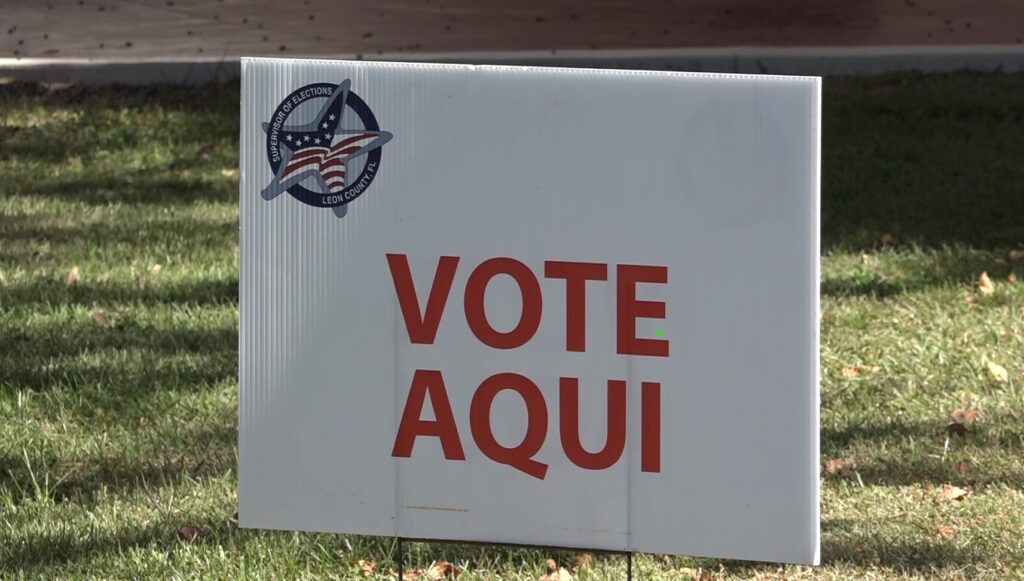
According to the NALEO Educational Fund, one in every five Floridian voters is Latino.
With a 13.8% increase in Latino voters since 2020, this demographic of voters is predicted to bring a nearly 55% projected voter turnout to this year’s presidential election. Likewise, both Democrats and Republicans have been vying to swing the Hispanic vote to their respective hopefuls, Vice President Kamala Harris and former President Donald Trump.
Since Trump first appeared on the ballot in 2016, controversial issues and comments about the Hispanic community have been relevant in election cycles.
When Trump first announced his presidential bid in the summer of 2015, he said, “When Mexico sends its people, they’re not sending their best … They’re bringing drugs. They’re bringing crime. They’re rapists. And some, I assume, are good people.”
That rhetoric has since amplified, with Trump maintaining these claims (and expanding false accusations toward Haitian immigrants) on the debate stage. Just recently, a comedian at a Trump rally sparked backlash after referring to Puerto Rico as a “floating island of garbage.”
Despite these incidents, the Latino vote has been steadily increasing for the Republican Party. According to the Americas Society/Council of the Americas (AS/COA), Latinos in 2020 voted about 32% for the GOP, a five percent increase from 2012. Correspondingly, Latino support for the Democratic Party dropped from 71% to 66% in the past eight years.
Daniella Miller, an animal biology student at the University of Florida, will be voting for the first time on Nov. 5. Coming from a Cuban-American and Dominican heritage and a politically active family, Miller weighs in on the rise of conservatism in the Hispanic community.
“Hispanic culture is rooted in the maintenance of tradition, and I feel they view conservatism as more closely aligned with the idea of tradition, specifically about religion (since most Hispanics are Christian or Catholic) and familial dynamics,” Miller said. “A lot of Hispanic Republicans I’ve come across also seem to have strong opinions on illegal immigration. If they have come here legally, it seems like they feel since they were able to do it, then those who come to this country illegally are wrong, even though they may be experiencing a different situation in their home country.”
According to the Pew Research Center, Hispanic adults comprise the largest percentage of eligible immigrant voters at 34%. About half of Latino voters polled believed that Trump would aid in building a more robust economy, and about 45% thought that Trump would make wise decisions on immigration policies.
In Florida, specifically in Miami-Dade County, the Hispanic population stands at 69.1% as of 2023. Cuban-Americans make up the region’s largest share of voters, and their voter turnout helped Trump win the state in 2020.
Carmen Sesin at NBC News said, “Around 55 percent of Florida’s Cuban-American vote went to Trump, according to NBC News exit polls, while 30 percent of Puerto Ricans and 48 percent of ‘other Latinos’ backed Trump.”
However, data shows that Florida’s Hispanic population could be more of an outlier than the new normal. Being from Miami, Miller continued her thoughts on the election.
“For this election, I predict we will see trends shift to the left for the Hispanic population, mostly because a lot of first- and second-generation Hispanics can vote that were probably not old enough last election. However, I am not sure that the older generation will make the switch to voting Democrat, especially as sad as I am to say, with the candidate being a woman of color,” Miller said.
Harris is currently leading in the Latino vote at 51-54% in various polls, but the sampling margin of error allows up to three points. The Pew Research Center also maintains that Hispanic/Latino voters view the Democratic Party as slightly more favorable and aligned with their interests than the Republican Party.
As Americans everywhere cast their ballots, the Hispanic community is one to watch as their consolidation spans populous states like Florida, California and Texas. Trump winning Florida gave him a fighting chance against Biden in 2020. With such a close contest, every vote counts.